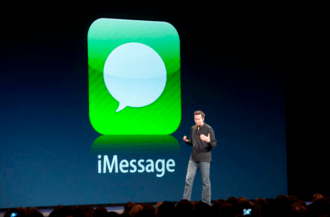An internal government document has revealed that encryption used in Apple's iMessage chat service has prevented Drug Enforcement Administration officials from spying on suspects' conversations. The document, seen by CNET, cites a February 2013 criminal investigation where officials said it is impossible to intercept iMessages between two Apple devices regardless of service provider, even with a court order.
The DEA just recently became aware of the service despite the fact that iMessage launched in October 2011. According to the report, the task force noticed that not all text messages were being captured from data supplied by Verizon Wireless. It soon became evident that the suspect was using iMessage to communicate with some associates.
Apple's iMessage, which sends messages over the Internet instead of as a traditional SMS, is the most popular encrypted chat program in history. As of last fall, the service had sent more than 300 billion messages. The free service prompted a number of wireless carriers to adjust their text messaging plans to make up for lost revenue.
Apple didn't specifically design iMessage to circumvent government surveillance, according to senior policy analyst Christopher Soghoian from the American Civil Liberties Union. He said the government would need to perform what's described as an active man-in-the-middle attack to intercept data. Soghoian goes on to say that the real issue is why phone companies in 2013 are still delivering unencrypted audio and text services to their users. "It's disgraceful," as he puts it.
